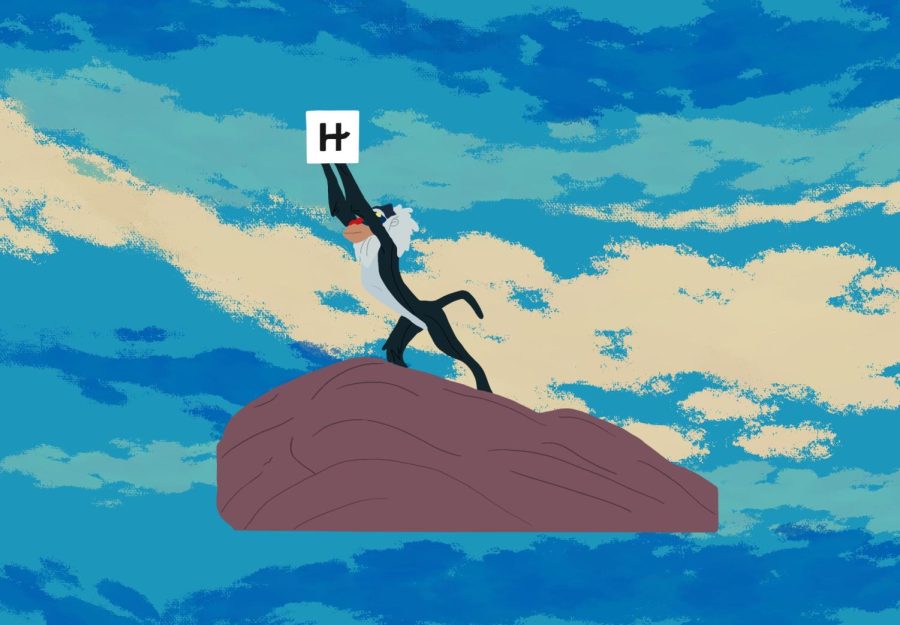College Dating Culture: Are Dating Apps Ruining Romance?
A recent study by Pew Research found that nearly 50% of college students currently use or have used dating apps, with this percentage increasing steadily. Second-year Journalism major Abdullah El-Sherbeeny believes that the pandemic caused his peers to turn to online dating at a much higher rate.
“COVID-19 affected dating culture in the sense that people are not as open as they were before because they were a lot more reliant on social media,” El-Sherbeeny said.
There are many factors that contribute to one’s experience on dating apps: differing viewpoints, platforms, sexualities and desires all play a part in finding romance online. Rachel Fish, a third-year biology major, found the scene to be a mixed bag overall.
“I think [dating apps are] a great way to make friends, but romantic connection is based on a lot of in-person cues,” Fish said.
The rigidity of technologically-driven correspondence does not often allow for social cues such as tonal inflection, body language, eye contact or other critical aspects of communicating accurately with others. El-Sherbeeny pointed out other stark differences between dating online and meeting a potential partner in person.
“The thing about dating online is that some people have different social boundaries,” El-Sherbeeny said. “Not everybody has the same characteristics online and offline, which can destroy the chemistry between some people.”
This disconnect has pushed some students off of dating apps entirely. Sadie Nelson, a second-year history major, offered their perspective on the impact of dating apps on modern relationships.
“I feel like people either use [dating apps] to fall in love or to hook up. What ever happened to good old fashioned dating?” Nelson said. “Dating apps have negatively impacted society because people rely on them too much instead of actually doing anything.”
The large number of dating app users can make those who choose to abstain feel excluded. El-Sherbeeny believes that the rise in online dating has imposed a restrictive social expectation on the right way to find romantic connection.
“[Online dating apps] have been very controlling of how people should date,” El-Sherbeeny said.
One notable characteristic of dating apps is heavily skewed gender balances. 78.1% of users on Tinder, the world’s most popular dating app, are men. Women and queer individuals are left in the minority by the saturation of male users on dating apps, making it difficult to form non-heteronormative connections.
“There are so many more men on dating apps than women. When I was open to all genders I was only getting likes and having conversations with men. When I changed it to women and non-binary people only, I was having maybe one conversation a week,” Fish said.
Even within those conversations, differences are noted. Fish found talking with women and non-binary people online to be a markedly different experience, particularly in reference to the types of questions she was asked.
“[Women and non-binary people] are more serious about it than dudes are,” Fish said. “They’re more willing to have a chill conversation rather than ‘what do your boobs look like?’”
Nelson agreed that dating apps could be helpful for finding queer love, but pointed out that forming connections isn’t always simple. In addition to the convoluted nature of interpersonal connections, they pointed out that people have a variety of expectations when it comes to what they hope to gain by using dating apps.
“I feel like [other people] either use it to fall in love ASAP, or they just want a hookup,” Nelson said. “But [dating apps] can be nice if you are queer and trying to see who else is gay.”
While the perception may be that every young person is using dating apps, just as many choose to abstain for a variety of reasons. At the end of the day, Nelson believes that romantic compatibility is ultimately determined by chance, not by time spent actively looking.
“I think that in general with relationships, whatever is meant to happen will happen. If you’re looking for love, you aren’t going to find it—it just shows up,” Nelson said.











